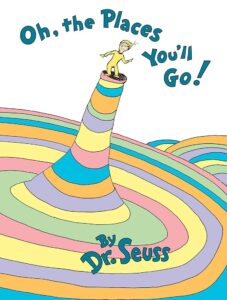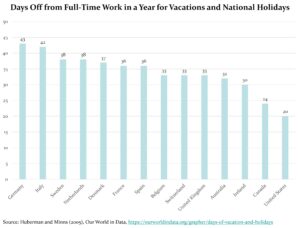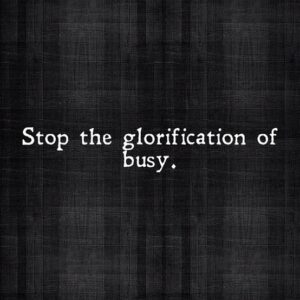Article Summary:
Busy professionals and leaders often neglect activities that enrich their lives. How to bring more fun, play, travel, and hobbies into your life.
+++
You want to live fully and vibrantly—but between work and family responsibilities, your good intentions slip away.
Many modern workers don’t have enough margin in their lives. For some, their identity is too wrapped up in their work. Others are addicted to work: they can’t stop doing it, or even thinking about it.
Too often, the lighter and fun parts of life get squeezed out. Big mistake.
How Your Activities Can Enrich Your Quality of Life
Activities that bring fun, rest, and renewal are powerful catalysts for joy, fulfillment, and resilience. They aren’t indulgences. They’re fuel for living well. Here are four powerful benefits of regularly making time for fun and life-boosting activities:
1. Personal and Emotional Renewal. Activities that delight or relax you help reduce stress, improve mood, and restore energy. They boost your resilience. When your inner battery is charged, you’re better able to show up for others and to adapt well when challenges arise.
2. Improved Creativity and Problem-Solving. Stepping away from work for play or hobbies gives your brain breathing room. That mental space often sparks fresh ideas and unexpected solutions.
3. Stronger Relationships. Shared fun—whether games with family, travel with friends, or hobby groups—deepens bonds and creates memories you’ll treasure.
4. A Richer Life Story. Fun activities and adventures add color and texture to your life. They summon both memories and meaning.
Ways to Boost Your Quality of Life via Activities
Below are some common life-boosting activities you can engage in to add more richness to your days. You don’t have to do them all. Just pick a few that speak to you and weave them into your routines.
Play
As adults, it’s common for play to disappear from our lives. Common, but harmful. Is it time to bring any of the following back into your life?
- board and card games
- game nights
- musical instruments
- play time with friends, kids, or grandkids
- puzzles
- sports (recreational or competitive)
- team games or lighthearted competitions at work or with friends
- trivia nights
- video games
“Our brains are built to benefit from play no matter what our age.”
-Theresa A. Kestly, psychologist
Fun
Too busy with work and family obligations? Is your fun factor ridiculously low? Look below and see if there are things that call out to you:
- arcades
- comedy shows
- concerts
- cooking or baking experiments or classes
- escape rooms
- festivals
- ice cream runs
- karaoke nights
- outdoor adventures (e.g., hiking, paddleboarding)
- spontaneous outings
- theme park trips
- trying new experiences just for the fun of it

Quality of Life Assessment
Evaluate your quality of life in ten key areas by taking our assessment. Discover your strongest areas, and the areas that need work, then act accordingly.
Hobbies
With all that you’re doing, have you let any hobbies fall by the wayside? Take a look below and see if any of them strike your fancy:
- art
- baking or cooking
- birdwatching
- book clubs
- clubs or online communities for shared interests
- crafting or D.I.Y. projects
- gardening
- painting
- photography
- playing musical instruments
- pottery
- woodworking
Travel
With busy schedules and daily responsibilities, opportunities for travel often get postponed or overlooked. Are you overdue for any of the following?
- adventure travel
- cruise vacations
- cultural or heritage tours
- eco-tourism
- food and wine tours
- group tours or guided trips
- international adventures
- local getaways and gems (e.g., parks, trails, historic sites)
- road trips
- service trips or cultural exchanges to broaden horizons
- solo travel
- weekend getaways
- wellness retreats

Free Time
When life is full of obligations, your free time can easily slip away unnoticed. Ask the following:
- Are you in the habit of taking relaxing breaks throughout the day?
- Do you have slow mornings with coffee, meditation, journaling, or prayer?
- Are there unstructured blocks of time in your calendar for wandering, reading, or just chilling out?
- Do you take walks without earbuds to notice your surroundings?
Vacations
Many people these days don’t take advantage of the vacation time they have. (See the Appendix below for data on this.)
- Are you taking longer breaks every year to rest, reset, and reconnect with loved ones?
- When on vacation, do you stay off work email and truly unplug?

Take the Traps Test
We all fall into traps in life. Sometimes we’re not even aware of it, and we can’t get out of traps we don’t know we’re in. Evaluate yourself with our Traps Test.
Note: You Must Take Charge of Your Free Time
If you don’t take charge of your free time, it can easily slip away in the busyness of daily life. You may be highly organized and intentional at work, yet passive about your free time: doomscrolling on your phone, binge-watching Netflix, or simply zoning out. Intentionally designing and protecting your free time is essential if you want it to be restorative and enriching.
“Unless a person takes charge of them, both work and free time are likely to be disappointing.”
-Mihaly Csikszentmihalyi
Reflecting on Your Activities
You’re wise to pause and reflect on your activities every once in a while. Ask yourself:
- What’s your interest level in the activity?
- Is it fun?
- How much do you enjoy it?
- Do you find it engaging?
- Does it relax and restore you?
- Does it lead to memorable or meaningful activities?
Activities that score high on these factors will not only enrich your life but also energize you for your other responsibilities.
Connecting with Others Is Key
We’re living through what many experts call a loneliness epidemic. The pandemic only intensified the challenge of staying social. While there’s absolutely a time and place for solo activities, don’t overlook how much more enjoyable and rewarding many activities become when you share them with others. When you build in opportunities to connect, you boost your sense of belonging and strengthen relationships.
“Playing a game together actually builds up bonds and trust and cooperation.
We actually build stronger social relationships as a result.”
-Jane McGonigal, game designer
Conclusion
Our world is rich with possibilities. You’ve got countless ways to play, rest, and explore. Every day offers a new chance to take you on energizing adventures or recharge your spirit.
Choose life-boosting activities that speak to you. Don’t let them fall by the wayside. The more you nurture yourself with animating and revitalizing activities, the more fully you can experience your days.
–Gregg
“Doing what you love is the cornerstone of having abundance in your life.”
-Wayne Dyer
Tools for You
- Quality of Life Assessment so you can discover your strongest areas and the areas that need work, then act accordingly.
- Crafting Your Life & Work online course to help you design your next chapter and create a life you love.
- Traps Test (Common Traps of Living) to help you identify what’s getting in the way of your happiness and quality of life.

Quality of Life Assessment
Evaluate your quality of life in ten key areas by taking our assessment. Discover your strongest areas, and the areas that need work, then act accordingly.
Related Articles and Books
- “Taking Stock of Your Quality of Life”
- “Why We Want Adventure in Our Lives—And How to Get It”
- “Do You Have Margin in Your Life?”
- “The Trap of Workaholism—And What to Do About It”
- “Is This It? On the Disappointment of Success”
- “How to Use Anticipation to Boost Your Happiness”
- “The Benefits of Play for Adults” (HelpGuide.org)
- “Why Play Is Serious Work” (Brookings Institution)
- “Why You Need More Fun in Your Life, According to Science” (Dr. Michael Rucker)
- “Here’s Why You Should Make a Habit of Having More Fun” (NPR)
- “Why Travel Should Be Considered an Essential Human Activity” (National Geographic)
- “Why Travel Is Good for Your Mental Health” (Psychology Today)
- Michael Rucker, The Fun Habit: How the Pursuit of Joy and Wonder Can Change Your Life
Postscript: Inspirations on Life-Boosting Activities and Quality of Life
- “The drive to play freely is a basic, biological drive. Lack of free play may not kill the physical body, as would lack of air, food, or water, but it kills the spirit and stunts mental growth.” -Peter Gray, psychologist
- “Play is the foundation of learning, creativity, self-expression, and constructive problem-solving.” -Susan Linn, psychiatrist
- “Play is our brain’s favorite way of learning.” -Diane Ackerman, author
- “Almost all creativity involves purposeful play.” -Abraham Maslow, American psychologist
- “People rarely succeed unless they have fun in what they are doing.” -Dale Carnegie
- “If you’re not having fun, you’re doing something wrong.” -Groucho Marx
- “Laughter is an instant vacation.” -Milton Berle
- “Fun is one of the most important—and underrated—ingredients in any successful venture.” -Richard Branson, British entrepreneur
- “Hobbies are great distractions from the worries and troubles that plague daily living.” -Bill Malone
- “A hobby a day keeps the doldrums away.” -Phyllis McGinley
- “See the world. It’s more fantastic than any dream.” -Ray Bradbury, writer
- “To travel is to live.” -Hans Christian Andersen, Danish author
- “Once a year, go someplace you’ve never been before.” -Tenzin Gyatso, 14th Dalai Lama
- “Traveling—it leaves you speechless, then turns you into a storyteller.” -Ibn Battuta
- “There is a kind of magicness about going far away and then coming back all changed.” -Kate Douglas Wiggin
- “Plotting a trip is nearly as enjoyable as actually taking one. Merely thinking about a pleasurable experience is itself pleasurable. Anticipation is its own reward.” -Eric Weiner
Appendix: Vacations and Holidays across Countries
In the U.S., workplaces give much less time off for vacations and holidays than many of their peer countries around the world. See below.

What’s more, many American workers don’t take the time off they’re given. According to a recent Pew Research Center survey, about 46% of U.S. workers with employer-provided paid time off—covering vacation, medical appointments, or minor illnesses—use less time than they are entitled to. Here are the top reasons cited:
- Don’t feel they need to take more time off (52%)
- Worry they might fall behind at work (49%)
- Feel badly about co-workers taking on additional work (43%)
- Think taking more time off might hurt chances for advancement (19%)
- Think they might risk losing their job (16%)
- Manager discourages taking time off (12%)
Some additional research:
- “Ironically, what’s supposed to be a source of relaxation and restoration morphs into a stressor: As vacations approach, feelings of doubt and guilt creep in….
- Upon moving to the U.S. in 2016, I was surprised at how pervasive vacation guilt appeared to be….
- We found that 1 in 5 respondents to our survey experienced vacation guilt, and these concerns made them think twice about following through with their vacation plans. For those who eventually did take a vacation, they often tried to ease their guilt by going for fewer days. They might also apologize for taking a vacation or avoid talking about their vacation plans at work….
- Some of the people we interviewed had pushed through their hesitation and taken their vacation as planned. Yet all of these employees believed that they’d been penalized for taking time off and that it led to poor performance reviews, despite the fact that their paid vacation days had been a clearly articulated, earned benefit….
- The U.S. is the only advanced economy that doesn’t legally mandate a minimum number of vacation days. On top of that, only a handful of states require workers to be compensated for their unused vacation days…. many employees face a ‘use-it-or-lose-it’ situation, meaning unused vacation days don’t roll over from one year to the next….
- the guilt that so many workers do feel may be symbolic of broader issues: an unhealthy workplace culture, a toxic boss or a weak social safety net.”
(Source: Karen Tan, “Researchers examine why so many American workers feel guilty taking vacation time,” PBS, July 27, 2025.)

Crafting Your Life and Work Course
Regain clarity, direction, and motivation for your next chapter, starting with a powerful foundation of self-awareness and commitment to your values and aspirations.
+++++++++++++++++
Gregg Vanourek is a writer, teacher, and TEDx speaker on personal development and leadership. He is co-author of three books, including LIFE Entrepreneurs: Ordinary People Creating Extraordinary Lives (a manifesto for living with purpose and passion) and Triple Crown Leadership: Building Excellent, Ethical, and Enduring Organizations (a winner of the International Book Awards). Check out his Crafting Your Life & Work online course or get his monthly newsletter. If you found value in this article, please forward it to a friend. Every little bit helps!



